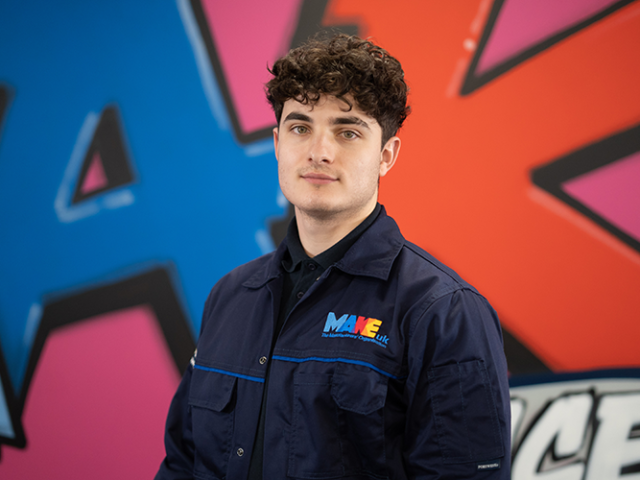Noah Auman, studied Electronic and Electrical Engineering at University of Birmingham. He completed a summer internship at Plextek and then was employed after graduation. Noah caught up with Student Circuit, giving us an insight into his journey so far.
Is there a specific moment that sparked your interest in engineering?
I built my first computer when I was 14 and that sparked my interest in seeing how electronics worked and how to take things apart and put them back together again. I originally wanted to study physics at university but realised that I wanted to study a more hands-on subject and engineering filled that gap for me. I loved being able to learn about quite physics-y concepts in lectures and then directly apply the process in the laboratory.
How did you find your university experience?
I enjoyed my time at university, I got to learn about things that interested me, and I made some lifelong friends. University gave me a controlled environment to get used to living away from home where I was independent and free to organise my own time but there was still structure with my lectures and support there if I needed it. My course also had a lot of contact time compared to some other courses which was a big positive for me as I liked the structure of my lectures followed by hand- on labs, but this may not suit everyone. Something I found quite difficult when I got to university was the step-up in workload between my first and second years. The second year was very full-on and if I didn’t have a supportive group of friends then I think I would have struggled.
How did you find the application process for the summer internship at Plextek?
The application process was straightforward. I found the internship through the UKESF scholarship, so I submitted one application to the scholarship scheme and this was then distributed to the four companies that I chose to apply to. After Plextek received my application, I was called for an in-person interview at their office. The interview was a part standard interview and a part technical interview where they tested my engineering skills with a few different design scenarios. After that interview, I was offered the summer placement so the whole process was quite short.
Was there a specific reason for choosing Plextek for your internship? What made you return after graduation?
I chose Plextek because of the varied nature of consulting work. I liked the idea of working on lots of different projects instead of a single long one. I enjoyed studying a variety of different subjects at university and having the ability to work on a wide range of projects meant I could develop those skills further. I found the culture to be friendly and everyone was very easy to get along with, so it was an easy decision to return after graduating.
Could you give an overview of what tasks you carried out as an intern?
I was given a project to work on during my summer placement, so I did not have any set day-to-day tasks. I was able to work autonomously to design an early concept of how to incorporate sensors into construction mesh which is used underground to stabilise the earth on civil engineering projects. I had a manager and a mentor to help me complete the project, but I was able to come up with my concepts and do my research to find a solution.
What is one thing that you learnt throughout your summer internship?
The main thing I learned from my summer internship was how to manage my time effectively and how to self-motivate to complete the project. All other project work I had done at university had been as part of a group, so I had other people to help keep the project on time and on track. My summer project enabled me to do all that for myself.
Any advice to current engineering students who might want to follow in your footsteps?
My advice would be to do as much work experience as you can as that is what will set you apart from other graduates. Doing summer placements and/or an industrial year will give you fantastic professional experience which is invaluable when looking for your first graduate job. Also, keep your CV up to date with all the projects you work on and skills you develop at university as this will save you a lot of hassle when it comes to applying for jobs and gives you great examples to talk about in interviews.




